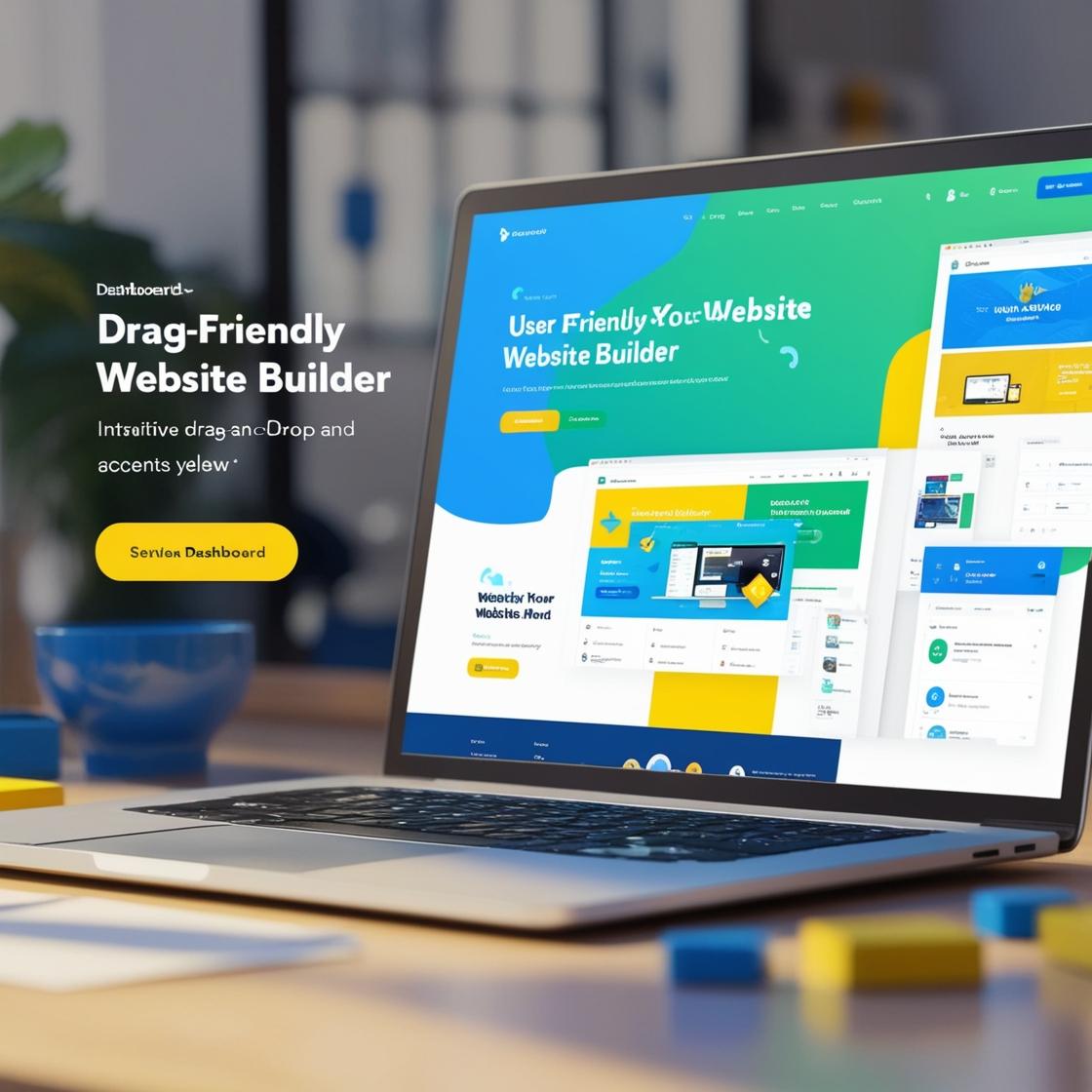Website Builder: Platforms for Building a website

Website Builder: The Essential Role of a Website for Musicians and Businesses
In today’s digital age, having a strong online presence is crucial for success. While social media platforms are popular, they should not be the sole focus. For musicians and businesses, a website is an indispensable tool.
Control Your Brand
With a website, you have full control over your brand and content. Social media platforms often change their algorithms, affecting your reach and visibility. A website allows you to showcase your work exactly how you want, without restrictions.
Establish Credibility
A website adds professionalism and credibility to your brand. When potential fans or customers search for you online, a well-designed website makes a strong first impression. It shows that you’re serious and invested in your craft or business.
Centralize Information
Your website acts as a central hub for all important information. Fans and customers can find everything they need in one place, whether it’s music, products, or contact details. This convenience enhances user experience and engagement.
Expand Your Reach
A website can reach a global audience, unrestricted by social media boundaries. It’s accessible to anyone with internet access, providing an opportunity to grow your fan base or customer base worldwide.
Use a Website Builder
Creating a website is easier than ever with a website builder. These tools allow you to design and launch a professional site without needing technical expertise. They offer customizable templates and features tailored to your needs.
Beware of Social Media Limitations
Relying solely on social media is risky. Platforms can change or disappear, taking your hard-earned followers with them. A website is a stable foundation for your online presence, unaffected by the whims of social media trends.
Best Platforms for Building a Website
Creating a website is more accessible than ever, thanks to a variety of user-friendly platforms. These platforms cater to different needs, from personal blogs to complex e-commerce sites. Here are some of the best platforms for building a website:
1. WordPress.org
WordPress.org is a powerful and flexible platform perfect for anyone looking to have complete control over their website.
- Pros:
- Highly customizable with thousands of themes and plugins.
- Great for SEO and optimized for search engines.
- Ideal for blogging, business sites, and e-commerce.
- Cons:
- Requires a hosting provider and domain purchase.
- Steeper learning curve for beginners.
2. Wix
Wix is an intuitive, drag-and-drop website builder that is suitable for beginners and small businesses.
- Pros:
- Easy to use with no coding skills required.
- Offers a free plan with basic features.
- Large selection of templates and an app market for additional functionalities.
- Cons:
- Limited flexibility once a template is chosen.
- The free plan includes Wix ads on your site.

3. Squarespace
Squarespace is known for its beautiful design templates and is often favored by creatives and small business owners.
- Pros:
- Stunning, professionally designed templates.
- All-in-one platform, including hosting and domain services.
- Excellent customer support and built-in marketing tools.
- Cons:
- Limited third-party app integrations.
- Slightly more expensive than some competitors.
4. Shopify
Shopify is a robust e-commerce platform designed specifically for online stores.
- Pros:
- Comprehensive e-commerce features, including payment processing and inventory management.
- Scalable for growing businesses.
- Offers a large selection of themes and apps.
- Cons:
- Monthly fees can add up with additional apps.
- Not ideal for non-e-commerce websites.
5. Weebly
Weebly is a straightforward website builder with an easy-to-navigate interface, ideal for small businesses and personal projects.
- Pros:
- Simple drag-and-drop functionality.
- Offers free and affordable pricing plans.
- Integrated marketing features and e-commerce capabilities.
- Cons:
- Less design flexibility compared to other platforms.
- Limited customization options for advanced users.
6. Joomla
Joomla is a content management system that offers flexibility and is suitable for building more complex websites.

- Pros:
- Strong community and extensive extensions directory.
- Supports multiple languages and is highly customizable.
- Suitable for social networking sites and complex web applications.
- Cons:
- More complex than WordPress, requiring technical knowledge.
- Fewer themes and extensions compared to WordPress.
7. Ghost
Ghost is a platform focused on professional publishing, ideal for bloggers and journalists.
- Pros:
- Fast and optimized for SEO.
- Clean, modern design with a focus on content.
- Offers membership and subscription features.
- Cons:
- Limited plugins and themes compared to WordPress.
- Requires some technical knowledge for self-hosting.
Each of these platforms offers distinct features tailored to different needs and skill levels. When choosing the right platform, consider your website’s purpose, budget, and your technical proficiency.
Conclusion
Investing in a website is a smart move for musicians and businesses. It provides control, credibility, and global reach, offering benefits that social media alone cannot match. Don’t let your online presence be at the mercy of social media platforms. Embrace the power of a website to secure your digital future.
